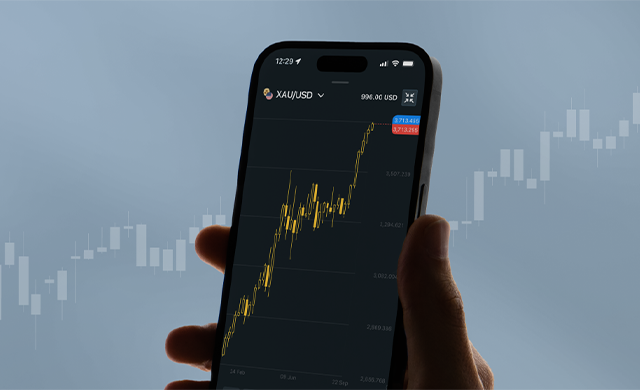What does it take to trade effectively? Many would point to experience, knowledge, or intuition. But even the most skilled market participants cannot perform without the right conditions. Execution quality, transparency, and stability may not be as visible as a chart or an indicator, yet they allow traders to approach the markets with clarity, consistency, and control.

When execution falters, even the best strategies can unravel. Trades may open or close at prices far from expectations, stop losses may slip beyond their limits, and spreads may widen just as volatility peaks. This is why traders place so much weight on the reliability of their broker and why they turn to Exness, a broker known for providing the kind of reliable and frictionless trading experience that supports traders when it matters most.
What do traders need?
In calm markets or during volatility, traders depend on five key ingredients:
- Fast execution: Orders must be placed instantly, especially when prices move in milliseconds.
- Precision: Trades should be executed as close as possible to the intended price, so that tools like stop losses work as planned.
- Reliability: Platforms must perform under pressure. Downtime or delays can mean missed opportunities or unnecessary risk.
- Transparency: Spreads and fees should be clear and consistent, not hidden in fine print or subject to sudden changes.
- Control: Traders need the ability to manage exposure, keeping their positions and funds under their control.
Let’s examine how these ingredients work in practice and why they matter most during periods of volatility.
Gaps become clear only when platforms fail
The unfortunate reality is that some of these conditions are only “visible” when you start experiencing them, and painfully obvious only when they fail. Slow execution becomes obvious only when it results in slippage and missed opportunities. Negative Balance Protection becomes relevant when extreme volatility pushes an account into negative territory.
Platform reliability may go unnoticed for months until downtime interrupts a crucial trade. This is why choosing a broker with proven consistency matters. Exness has built its reputation by making these elements visible upfront—communicating conditions clearly and proving them at scale through data and research.
Technology that makes a difference
A trader might find it challenging to find the right “recipe” of conditions to ensure they have the best possible advantage on the market. Some brokers may offer one or two of the five ingredients, but very few deliver all of them in unison. And since these features are interconnected, missing one can undermine the rest. Precision, for example, is almost impossible without fast execution.
Exness backs up its conditions with real-world performance data. Thanks to its proprietary liquidity engine, clients experience three times less slippage than the industry standard.1 This technology also allows the broker to maintain three times fewer stop outs, supported by its 0% stop out level.2 Together, these features ensure that execution remains precise and conditions remain stable, even under volatility.
Spread stability and lower costs
Spreads are another area where conditions can make or break a strategy. During high-impact news, many brokers widen spreads dramatically, raising costs at the worst possible time. Exness, by contrast, offers some of the market’s lowest and most stable spreads.3
- Spreads on gold (XAUUSD) have been reduced by 20%,4 helping traders manage one of the most in-demand safe-haven assets.
- Spreads on USOIL have been reduced by 69.4%,4 a major advantage given oil’s sensitivity to OPEC+ decisions and supply disruptions.
- Spreads on US indices are down by as much as 82%,4 cutting costs in one of the most widely traded markets.
- Spreads on BTCUSD are 53% lower.5
- Spreads on ETHUSD are 67% lower than before, providing an edge in one of the most volatile digital assets.6
These reductions aren’t just numbers—they give traders confidence that conditions will hold even when volatility spikes.
What if you don’t have the five advantages?
The consequences of missing any of these conditions are clear in real-world scenarios. Take the bitcoin crashes of March 2020 and May 2021, where the coin lost over 50% of its value each time. Traders facing slow execution saw slippage magnify losses or diminish returns. Those trading with brokers that widened spreads significantly may have managed to profit, but much of it would have been consumed by higher costs.
Without these five key ingredients-fast execution, precision, reliability, transparency, and control-strategies are left exposed. With them, traders gain the consistency needed to withstand volatility and continue trading on their terms.
So choose your broker wisely and ensure that the conditions you need to succeed are the conditions they are committed to offering.
1 3x less slippage claims refer to average slippage rates on pending orders based on data collected between September 2024 and July 2025 for XAUUSD, USOIL, and BTC CFDs on the Exness Standard account vs similar accounts offered by four other brokers. Delays and slippage may occur. No guarantee of execution speed or precision is provided.
2 On average, Exness has three times fewer stop outs than competitors. Analysis covers orders for April 2025, comparing Exness’ 0% stop out level with that of three competitors’ levels (15%, 20%, 50%). To normalize extreme ratios, stop out results have been square-root transformed, values rounded to the nearest whole number, without taking into account the conditions that indirectly affect the stop out.
3 Stable spread claims refer to maximum spreads on XAUUSD, USDJPY, EURUSD, and GBPUSD for the first two seconds following high-impact news. This comparison is made between the Exness Pro account and commission-free accounts of several other brokers, all excluding agent commission, from 1 January to 23 August 2024.
4 Spread reduction refers to spreads on Pro accounts, sampled over the first full trading week of July 2024 compared to the last full trading week of August 2025.
5 Stable spreads for BTCUSD CFDs on the Standard account remained at their minimum levels for over 99.98% of the time, from 23 June to 3 July 2025. 53% reduced BTCUSD spread claim refers to a spread reduction on BTCUSD CFDs on Pro accounts, comparing spreads from 8 to 15 September 2025 relative to the 2024 average. 79% savings on BTCUSD claim refers to the maximum BTCUSD CFDs spreads on the Exness Pro account, based on data collected from 12 to 25 May 2025, compared with average maximum BTCUSD CFDs spreads across the tightest commission-free accounts offered by eight other brokers.
6 67% reduced ETHUSD spreads claim refers to a spread reduction on ETHUSD CFDs on Standard accounts, comparing spreads during 22 June 2025 – 30 June 2025 relative to the 2024 November average.


 Hot Features
Hot Features













